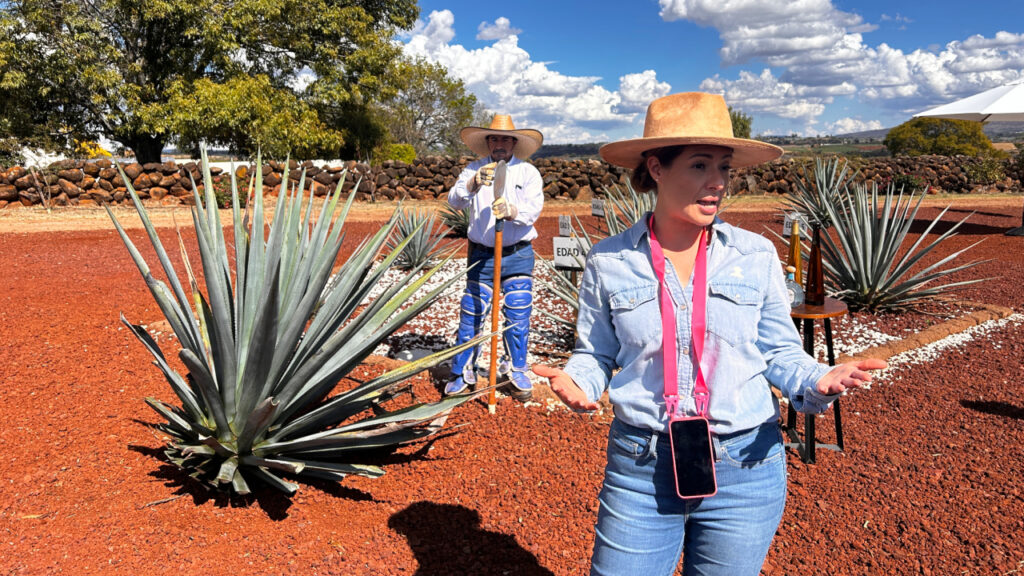
Cristina Jiménez Helped Millions of Dreamers Find Power—Now Her Memoir Maps Out Exactly How
Cristina Jimenez has spent her life turning fear into action. From arriving in Queens as a 13-year-old undocumented immigrant from Ecuador to co-founding United We Dream, the largest immigrant youth-led organization in the country, her path has always been one of radical transformation. Now, as she releases her new book Dreaming of Home: How We Turn Fear Into Pride, Power and Real Change, Cristina is calling on the next generation to organize—before it’s too late.
From Ecuador to Queens: Cristina Jimenez Shares the Story Behind the Struggle
Cristina Jimenez came to the United States in 1998, after political and economic instability in Ecuador devastated her family. “Many of the policies that impacted my family were around taking away subsidies for utilities and efforts to privatize healthcare, water, and electricity,” Jimenez recalled in our conversation. Her father lost his job, and the family made the difficult decision to leave behind their home in search of stability.
“We got here with the dreams of a better life,” she said. “Food on the table, a place to live, and an education for their children that neither one of them had access to.”
Settling in a one-bedroom apartment in Queens, Cristina was surrounded by immigrants from all over the world. At Newtown High School, where students spoke more than 70 languages, she found something that shaped her forever: community.
“I’m like this immigrant girl that’s afraid, that had so much shame for knowing we were undocumented, for not knowing the language,” she said. But within that diversity, she found peers who were just like her. “All of our parents risked everything to give their kids a better life. And they all had dreams that we would go to college.”
The Roots of United We Dream: Cristina Jimenez on Youth, Fear, and Organizing
Though she found belonging, fear was always in the background. “Living with the fear of going to school and not knowing that you will find your parents back was very torturous,” she said. Post-9/11 immigration policy and rhetoric intensified that fear. “Very quickly the conversation turned into immigrants being seen as the threat. That included Muslim folks, but it also included folks that looked like me.”
Jimenez became an activist during college. The first deportation case she worked on was that of Marie Gonzalez, an undocumented young woman facing deportation due to new immigration enforcement policies.
“Seeing other young people fighting like her, sharing their stories, and fighting for their families—that was what really inspired me to find my own voice,” she said.
This led to the founding of United We Dream in 2008. “We were a community of very afraid but also courageous people who risked so much—deportation, family separation—to create change,” Jimenez explained. That change included fighting for and helping influence the enactment of DACA in 2012.
Why Jimenez Wrote Dreaming of Home in This Political Moment
Jimenez began writing her book during the Trump administration, in the face of growing anti-immigrant rhetoric.
“There’s so much being said about us as immigrants that takes away our humanity,” she said. “They turn the courageous act of seeking the best for your family into a crime.”
In Dreaming of Home, Jimenez writes with candor and clarity about growing up undocumented, the toll of living in fear, and the power of community organizing. “It was really important for our voices to be protagonists, for us to be the ones telling our own stories,” she said.
As she told me, the book is a roadmap.
“No matter what is happening, we are not powerless. It’s up to us as individuals to tap into that power and into the power we have collectively.”
What Cristina Jimenez Hopes Readers Will Take From Her Book
At its core, Dreaming of Home is about reminding readers that change is possible. Jimenez wants her story to reach anyone who has ever felt “alone, hopeless, and like we cannot do anything to change how things are going.”
The book offers a way forward. “We want a country where all of us can live free, where all of us can thrive, and we don’t have to live in fear,” she said. “We find that in community.”
She describes home not just as a physical space but a sense of safety, love, and dignity. “What do people think when they think about home? Safety. Love. A feeling of being comforted. And we find that in each other.”
In a moment when immigrant communities are once again under political attack, Cristina Jimenez is choosing to fight with her story—one that proves the power of organizing is as urgent now as ever.




